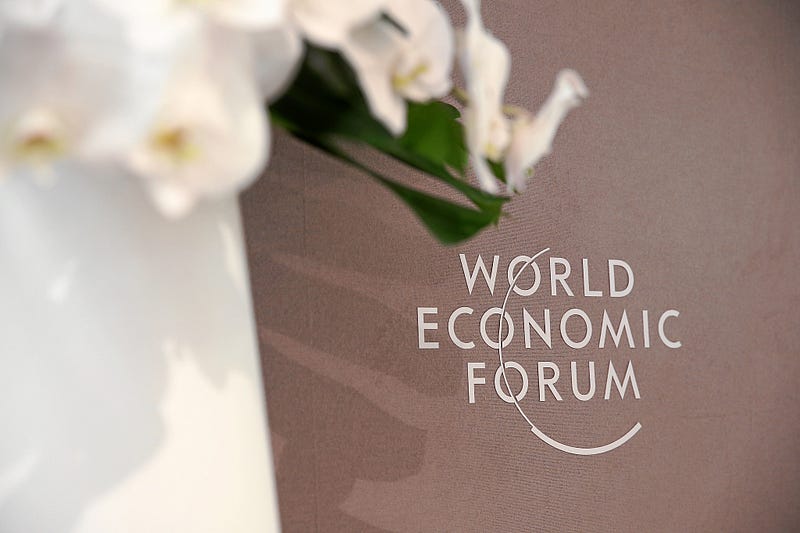2025 feels like the moment when every elite project collided with political reality - and lost.

There’s a jittery, end-of-era feeling running through political and corporate America — and it isn’t just the Donald Trump effect.
ESG is in retreat. DEI bureaucracies are collapsing. And open-borders idealism is crashing into mathematical reality. For a decade, the Davos–Wall Street–academic consensus assumed history had ended and voters would simply accept whatever “stakeholder capitalism” handed them. But 2025 is proving the opposite.
Several months ago, Andrew Puzder warned that the “Battle Against ESG Isn’t Over,” even with political winds shifting. His book, A Tyranny for the Good of Its Victims, explains how the “Big Three” — BlackRock, State Street, and Vanguard — used their combined $21–23 trillion to push ideological agendas through corporate governance. That pressure produced bizarre outcomes: Disney feuding with Florida; Bud Light tanking a century-old brand in weeks; ExxonMobil pledging “net zero” while producing record oil; Ford, GM, and Toyota retreating from ambitious EV targets as demand lagged.
This wasn’t organic. It was top-down. And for a long time, CEOs fell in line because the Big Three were too powerful to ignore.
But politics changed. Consumers changed. And shareholders changed.
The DEI Contraction
DEI was supposed to be permanent — “baked in,” untouchable, moralized. Instead, it’s the first corporate bureaucracy on the chopping block. After lawsuits, declining revenues, and public backlash, companies quietly reversed course:
Meta, Google, and Zoom cut large portions of their DEI teams. Citigroup, McDonald’s, and Nike rolled back training and hiring mandates. Universities — Harvard, MIT, Stanford, Penn — cut or restructured DEI offices after donor revolts and congressional pressure.
States from Texas to Florida moved to defund DEI entirely in public institutions. Americans didn’t reject diversity. They rejected mandatory ideology disguised as HR.
Open Borders Meets Arithmetic
Migration now dominates Western politics. Europe’s long-running open-borders consensus collapsed under surging arrivals and overwhelmed social systems. Voters responded.
France’s National Rally surged. Germany’s AfD became the country’s second-largest party. Italy, Sweden, and Austria tightened immigration rules. Even the EU’s most liberal governments began admitting the obvious: open borders are not sustainable at current volumes.
The United States faced its own reckoning. Cities that once bragged about sanctuary status — New York, Chicago, Denver, Boston — entered fiscal crises as migrant arrivals overwhelmed budgets. Democratic mayors began demanding federal restrictions and reimbursements. Reality drowned out rhetoric.
Davos Wakes Up
At Davos earlier this year, former Assistant Defense Secretary Graham Allison captured the mood of elite anxiety. “We thought history was over, and we were merely administering things,” he said. That fantasy collapsed under geopolitical shocks — from Russia’s war in Ukraine to the Middle East destabilization to AI-driven economic disruption hitting far faster than expected.
Europe, Allison argued, “epitomizes the ‘us’ who is losing here.” For the first time, Davos openly acknowledged that its class no longer sets the terms of global politics.
The Trump Shockwave
Max Burns described Trump’s return as “bigger than ever,” and the opening waves of executive orders reversing Biden-era policies — immigration, DEI, climate rules — sent a message: the ESG–DEI–open borders framework is no longer the default setting of American governance. And with no reelection to worry about, Trump 2.0 acts with fewer restraints.
But the shift is bigger than Trump. He is a symptom, not the architect.
The Real Clash of 2025
The dividing line isn’t left vs. right — it’s voters vs. technocrats.
Shareholder governance vs. ESG paternalism
Merit-based systems vs. DEI bureaucracies
Border security vs. ideological universalism
Local reality vs. elite theory
The old order survived as long as the public stayed quiet. Now, from American suburbs to European capitals, the public is anything but.
Corporations feel it. Universities feel it. Davos feels it.
The elite consensus didn’t collapse because Trump returned.
It collapsed because voters finally said no.
(Contributing writer, Brooke Bell)